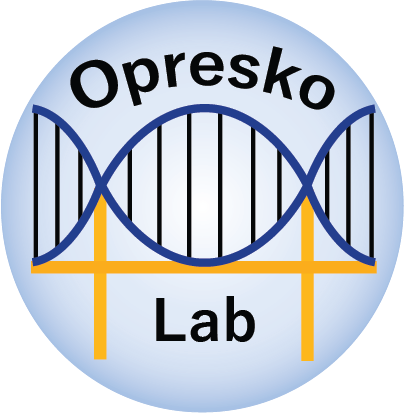Cell Reports Publication
We are proud to share that Cell Reports has published recent graduate, Dr. Sanjana Thosar’s first author paper “Oxidative guanine base damage plays a dual role in regulating productive ALT-associated homology-directed repair”. In this study, it was demonstrated that the common oxidative lesion 8-oxoguanine plays a dual role in regulating a homology directed repair-based telomere maintenance pathway known as ALT, depending on when the lesion arises in the cell cycle. Congratulations to Sanjana, Dr. Opresko, and all the authors who contributed to this awesome project!
Please see abstract and link to the article below.
Abstract:
Cancer cells maintain telomeres by upregulating telomerase or alternative lengthening of telomeres (ALT) via homology-directed repair at telomeric DNA breaks. 8-Oxoguanine (8oxoG) is a highly prevalent endogenous DNA lesion in telomeric sequences, altering telomere structure and telomerase activity, but its impact on ALT is unclear. Here, we demonstrate that targeted 8oxoG formation at telomeres stimulates ALT activity and homologous recombination specifically in ALT cancer cells. Mechanistically, an acute 8oxoG induction increases replication stress, as evidenced by increased telomere fragility and ATR kinase activation at ALT telomeres. Furthermore, ALT cells are more sensitive to chronic telomeric 8oxoG damage than telomerase-positive cancer cells, consistent with increased 8oxoG-induced replication stress. However, telomeric 8oxoG production in G2 phase, when ALT telomere elongation occurs, impairs telomeric DNA synthesis. Our study demonstrates that a common oxidative base lesion has a dual role in regulating ALT depending on when the damage arises in the cell cycle.
